Tuesday, June 30, 2020
Monday, June 29, 2020
Predental perspective: 2020 application cycle amidst the pandemic
It’s May 1. You’ve spent the past three months practicing limiting reactant problems and mastering the art of angle ranking to hopefully acquire all of your application materials just in time for the date engrained in every predent’s mind: June 16, the date the AADSAS application opens. Your test date is May 25, and you’ve never been more prepared for an exam in your life.
Then the dreaded Prometric email arrives, regretting to inform you that your long-awaited test date has been cancelled due to the restrictions of COVID-19. With an unclear future comes the inability to reschedule your date, and you’re left feeling hopeless, wondering if you’ll fall into the deep end of the applicant pool with an incomplete application. And have you even completed your shadowing hours? With all offices closed since mid-March (and all with varied reopening dates), did you accumulate enough experience to compete with the hundreds of hours other applicants may already have? With everything up in the air, is it even worth it to apply this year, or should you just push it all back and hope that next year offers you a better shot at your life’s dream?
Nobody could have predicted the devastating, all-embracing effects of the COVID-19 pandemic. It’s unsettling to realize how much our world can change. In a matter of weeks, we experienced a contagion whose sweeping influence necessitated an unimaginable, widespread response on many levels. Balancing the need to preserve human life and the collapse of so many plans has been challenging, both practically and emotionally.
There are multiple factors to consider in the 2020-21 cycle, both on the applicant end and dental school admissions board end. First, what happens when you can’t take the DAT? After attending numerous dental schools’ informative sessions and conversing with current students, the consensus is that applying early is integral. Of course, this notion relies on the fact that when you apply, admissions committees will only view your application if it has all of the required materials. Therefore, if you are taking the DAT after the application cycle opens and there is a delay in your score, you will not be considered with the first wave of applicants. This creates a terrific inequity: Only the applicants with complete files will receive the interview requests, and thus their competition pool will be significantly smaller.
As time passes, more applications will be completed as late DAT scores are submitted. Because early DAT-scoring candidates have already been interviewed and slotted into spots, the remaining applicants will potentially find themselves in a far larger applicant pool, enduring closer scrutiny and fiercer competition.
Therefore, many prospective students are left with no solution except to wait patiently for testing centers to reopen, and perhaps stretch their previously fixed study schedules to accommodate an undetermined testing date. Exasperated late-test-takers may consider waiting until next cycle to hit a proverbial restart button on their application process and present a stronger, complete profile by next June.
According to ADEA’s COVID-19 Update for ADEA AADSAS Applicants, schools such as University of Pittsburgh School of Dental Medicine are recognizing that prospective students had no control over the current situation and are reviewing applications “with the information available at the time of submission,” giving every applicant a fair chance. Hopefully, more and more dental schools will follow suit, amending their admissions protocols in the wake of these unprecedented circumstances.
Another application factor that the pandemic pressed pause on was the ability to obtain dental-related experience. With a minimum of 100 shadowing hours recommended by most dental schools, many applicants strive to exceed this number to showcase their dedication to the profession and to hopefully strengthen their application. But this recommendation may be difficult to meet in light of office closures due to COVID-related government orders. Assisting and shadowing became, at best, unfeasible and, at worse, illegal. And lost time is a factor for which there is no compensation. If schools do not take this factor into consideration, applicants may again be deterred from applying in this cycle and waiting until they can finish and enhance the unfinished parts of their application.
At the end of the day, it is up to the applicant whether or not they still want to apply this cycle, but there may be a cost for not submitting an application as strong as they anticipated.
Though this cycle may not be ideal, it will always be one to remember. When we can analyze the data on the number of applicants between this cycle and next cycle, then we will truly know the strength of the influence COVID-19 had on predentals’ application decisions and school acceptances.
~ Lauren Brown, University of Delaware ’22
Friday, June 26, 2020
Thursday, June 25, 2020
Wednesday, June 24, 2020
How to be an LGBTQIA+ ally in trying times
During Pride Month, we recognize the strides that the LGBTQIA+ community has made, the adversities we have overcome and the struggles that still remain in our fight for equality. Just a few years ago in many states across the nation, it was still illegal to marry someone of the same sex, and if you worked for someone with more than 15 employees, you could be fired from your job for being gay or transgender. Now, thanks to the Supreme Court, gay and trans folks can marry and have protections in the workplace.
However, not all aspects in the fight for sexual and gender equality have been a continuous progression. The Obama-era brought sweeping change for transgender individuals, allowing them to openly serve in the armed forces and granting them protection from discrimination in obtaining health care. However, the current administration has reversed both of these rights, turning away trans folks from being able to serve in the military and now, just a few days ago, revoking the protections against discrimination in obtaining health care based on sexual orientation and gender identity.
As family, friends, colleagues and fellow citizens to our LGBTQIA+ community, this news should be upsetting. As dental students and, more importantly, health care providers, you owe it to your patients to understand how these decisions might impact their care.
According to the non-profit health care news group, the Kaiser Family Foundation, the revoking of this rule means that unless a state has its own laws, an insurance company can ask about an individual’s sexual orientation or gender identity, and use either for the purposes of underwriting or determining insurability. This means that issuers of health insurance can legally procure and use information on sexuality and gender identity to charge higher premiums, charge other fees, or even cancel or deny coverage for those who are LGBTQIA+. Yet the Obama-era rule in the Affordable Care Act about protecting patients with pre-existing conditions that affect a wider range of people still stands today.
These policies will particularly impact patients with Medicaid plans. According to UCLA’s Williams Institute, over 1.1 million LGBTQIA+ individuals ages 18–64 have Medicaid as their primary source of health insurance. Why is there such a disparity? A 2015 survey by the National Center for Transgender Equality says, “Transgender, nonbinary, and gender nonconforming people are three times as likely to have a household income under $10,000 and three times as likely to be unemployed as the typical person in the U.S.”
With statistics like these, it’s incumbent upon us as current and future health care providers to be the best advocates for our patients as possible. When you take the Hippocratic Oath to serve as a dentist and when you practice under a code of ethics as every dentist must, you pledge your support for beneficence, non-maleficence and justice, to do good, refrain from harm, and to be fair and just. Part of this oath and the ethics by which we practice means providing an environment free of judgment, whereby you care for your patients no matter their race, religion, color, creed, sexual orientation or gender identity.
I urge you to go beyond just knowing this information, though, and to live it in your everyday lives and future practices. Don’t allow injustices such as the ones we see in the news fade into the distance. Speak up, especially if you’re an ally, and fight for the rights of those who are oppressed. Help make sure your patients will be able to obtain insurance to afford your care without having to worry about being charged more or denied coverage just because of their identity.
As ASDA members, we commit to the E-8 policy, our ASDA Student Code of Ethics. We also should all should be aware of the E-4 Sensitivity to Diversity policy, which states that “sexist, discriminatory or insensitive language and practices are unacceptable.” As a community and a group of young professionals, we are part of the present and future voice that will guide health care into the next century.
This Pride Month, before you hang up your rainbow flag or post something to your social media about your support for the community, take stock in the current situation of our country. Are we doing everything we can and electing the people we believe will fight on behalf of all our colleagues and patients? I then implore you to remember that feeling, to act on it in becoming a better, more educated supporter and ally of communities that continue to struggle and have their rights infringed upon, whether they’re gay, bi, trans, people of color, Latinx, Muslim, etc.
Lastly, if we want to bring about change in our country, we must participate in the democratic process, so I encourage you all to vote in your local primaries if they haven’t happened yet, and vote this November for candidates at every level of government — not just the president — based on who you believe will best uphold the same ethical principles you hold yourself to. You can even use ASDA’s newest advocacy tool, ASDA Action, to register to vote and find out more about candidates in your area.
Together, let’s make a brighter, more equal and just future for ourselves, our profession and the patients we serve.
~Joseph A. Manzella Jr., Stony Brook ’21, Chapter Immediate Past President, ASDA Speaker of the House
Tuesday, June 23, 2020
Monday, June 22, 2020
Dentistry’s transition toward more inclusive patient care
How many transgender dentists do you know? Is your answer greater than zero? My answer is exactly one and that person is myself. As a thought exercise, imagine you identify your dream career — and then consider what it would be like to pursue that same career without ever meeting any faculty, colleagues or mentors with similar lived experiences. This example highlights the importance of workforce representation, and it’s a struggle many minority groups know all too well.
It’s not as if there is a lack of transgender people in America. The Williams Institute estimates there are 1.4 million transgender adults in the country, or 0.6% of the U.S. adult population, and that number continues to rise every year with increasing societal acceptance. Per U.S. Bureau of Labor Statistics data, there are about as many transgender adults in this country as there are active elementary school teachers. So why, after two years of networking with dental students across the country, do I still struggle to meet someone who shares my identity?
The truth is that LGBTQ+ people — and trans people, in particular — face significant barriers in pursuing postsecondary education, barriers that originate from a lack of respect, understanding and, sometimes, outright bigotry. These factors make it difficult for queer and trans youth to excel academically: We suffer heightened rates of psychiatric disorders, violence, substance abuse, homelessness, bullying and suicidal thoughts, per HealthyPeople.gov. The 2015 U.S. Transgender Survey reported 40% of transgender respondents had attempted suicide in their lifetime.
June is LGBTQ+ Pride month, and Pride is about overcoming systemic oppression. Due to an increase in LGBTQ+ visibility over the last decade, many allies assume that we’ve “won,” but the truth is that queer and trans people have yet to realize the full spectrum of legally enforceable civil rights available to the broader cisgender, heterosexual public.
Just this month, our rights to non-discrimination protections in health care were threatened when the Trump administration announced it would be removing transgender identities from the protections secured in Section 1557 of the Affordable Care Act. Three days later, the Supreme Court decided for the first time in the history of this country that federal workplace non-discrimination protections include sexual orientation and gender identity. Statewide protections for LGBTQ+ individuals in health care, housing and the workforce are scattered and have led to a geographical distribution of civil rights that is unequal and unjust. The fight is far from over.
In the following paragraphs, I will leverage my identity and privilege as perhaps one of the only transgender dental students in the entire country to highlight a vision for transgender oral medicine that is rooted in justice, equity and empathy. When it comes to health care, being an “ally” to your patients can mean the difference between sickness and health, or even life and death.
In broad terms, our duty as allied health care providers is to create the safest environment possible for patients to discuss their health concerns and receive treatment recommendations. This includes abiding by the principles of non-maleficence, beneficence, justice and veracity outlined in ASDA’s Student Code of Ethics. We must start by recognizing the extent of discrimination against transgender patients: According to the aforementioned survey, 28% of respondents reported experiencing harassment in medical settings, while 19% reported being refused care outright due to their gender identity. It is vital that we as dental professionals leverage our power to reduce trauma to this vulnerable community.
To achieve this goal, we must educate ourselves on the fundamental aspects of transgender medicine. Transgender identities are diverse, valid and backed by science, and patients who pursue transition-related care will receive a diagnosis of “gender dysphoria/gender identity disorder.” With this in mind, we must then explore the most common treatment options, including any contraindications to dental treatment that may accompany them, while recognizing that no treatment is an acceptable and desirable treatment option for many trans individuals. In accordance with the justice principle, we should be as familiar with transgender hormone replacement therapy as we are with Atorvastatin, Metformin and Amlodipine.
The social aspect of trans health care is equally as important as the medical side. Our next job is to learn to speak with trans patients in a way that constantly affirms their identity, and this requires a level of cultural humility to which we may not be accustomed. Examples of ways to affirm transgender identities in your practice include adapting patient intake forms and EHR systems to allow for a variety of responses to questions about sex and gender identity as well as a space for pronouns. Every team member should be trained to offer their own pronouns before asking for those of the patient, and pronouns should be clearly displayed on every staff member’s name tag. This form of allyship designates the sharing of pronouns as a ritual that everyone can and should participate in. Finally, in terms of gathering information, we must ensure our inquiries are respectful, knowledge-based and relevant to the treatment at hand.
These recommendations are far from exhaustive, but they provide a foundation and concrete steps for leveraging spectatorship into active participation. Remember, Pride is only the most visible manifestation of a struggle that queer and trans individuals face in their personal lives on a daily basis. When LGBTQ+ Pride Month ends, the work continues. Educate yourselves, ask questions, stay humble and never forget that we as health care professionals took an oath to care for and protect even (especially) the most vulnerable among us.
~Bradley Morgan, San Francisco ’22
Friday, June 19, 2020
A brief history of Juneteenth
Although we are taught that the Emancipation Proclamation freed the confederate slaves, history books often fail to mention that it took two and a half years for all enslaved African Americans to receive their freedom. Juneteenth is a day that not only commemorates the last day of slavery but also the beginning of reconstruction in the United States.
In January 1863, Abraham Lincoln signed the Emancipation Proclamation, an ordinance that would free all slaves owned in confederate states. However, as the war raged on, many southern slave owners refused to comply, and given the lack of Union troops in the area, it was impossible to enforce the new statute. It was not until June 19, 1865, that Union troops, led by General Gordon Granger, arrived in Galveston, Texas, and notified nearly 250,000 slaves that they had been freed.
As news spread throughout the state, African Americans began to rejoice in their new freedom. For the next century, the black community would continue to celebrate on June 19 in recognition of the end of slavery, and in 1979, Texas made it an official holiday. Today, many states commemorate Juneteenth; however, celebrations vary across the country. Some families host a family gathering and barbeque, while others will use this day to simply bring awareness. Additionally, some organizations bring in speakers and hold seminars to aid in the education and self-improvement of the African American community.
For many Americans, July 4 is seen as the official celebration of freedom and independence from oppression. However, many black Americans know that at the time of the American Revolution, they were still considered less than human and were far from being free. That is what makes Juneteenth so special. It is a day for the black community to celebrate the beginning of our journey to freedom and equality. And although there is still a great amount of progress to be made, it is nice to acknowledge how far we have come.
As we witness the countless protests regarding police brutality and the systemic oppression of black Americans, we must understand our history and how centuries of injustice can push a community to their breaking point. As future health care professionals, it is our obligation to educate ourselves on the communities we will be serving so that we can confront our own biases and become allies for the voiceless.
Nevertheless, Juneteenth is not only a celebration of the ending of slavery in the United States but also a reminder of how long it takes to enact change. The Emancipation Proclamation was merely a stepping stone. It took countless troops fighting the confederacy to finally see a change in the south, and even that change included another 100 years of segregation, lynching and Jim Crow.
So in honor of Juneteenth, I challenge all readers to be a part of a movement that helps enforce the change you want to see in the world, whether it is an end to police brutality, income inequality or health disparities. If we do not stand up for what is right, we are complicit in what is wrong.
~ Christen Thompson, Detroit Mercy ‘22
Thursday, June 18, 2020
Wednesday, June 17, 2020
My dad, my role model
Ever since I can remember, I have been following in my father’s footsteps. When I was younger, that looked like “helping” him wash cars on a Saturday or watching a NASCAR race together on a Sunday after church. After high school, I followed in his footsteps by attending Clemson University, his alma mater. And what other profession would I have decided to set as my dream career other than his: dentistry! Just to make it even more official, I now attend the Dental College of Georgia, the same school my dad graduated from 25 years ago. It’s safe to say, my dad is my role model.

I have had the privilege of living at home with my parents and my 18-year-old brother during dental school. This means that I go to school all day, come home, and my dad re-teaches me everything in his private-practice, experienced-dentist way. I am sure my mom and brother are tired of all the tooth talk. My dad is the best teacher I have ever had, inside and outside of dental school.
There are many lessons I have learned from my dad, and one of these is to believe in myself and be confident. My dad definitely does both of those, but I’ve learned he may be a little too confident sometimes. One of these moments happened on a family vacation to the Abacos. We rented a boat, and the one rule my dad was given was to stay out of the Atlantic Ocean and only travel in the Caribbean Sea.
We were going to dinner (via boat) on our first full day of vacation to a restaurant called On Da Beach. Except something didn’t feel right. The water wasn’t blue anymore and there were no other boats in sight. Next thing I know, we were approaching the shore quickly and the waves were very rough. Long story short, we (my dad) beached the boat. His reasoning for traveling in the Atlantic was that he was “braver than anyone else.” We pushed for hours to get the boat back in the water; I thought it was going to sink, and our vacation would be ruined. The good news was that my dad beached it right in front of On Da Beach! The locals there helped us recover the boat and soon became our best friends. We spent every remaining night of vacation at On Da Beach, and this whole disaster ended up being one of our most laughed about memories.

This confidence continues to carry over into other aspects of my dad’s life. He is so confident in who God made him to be and the plan God has for his life that I rarely see him stressed. He approaches everything with an “I got this” attitude, even a new task. When I come to my dad for help with something I’m learning, stressed that I haven’t mastered it, he reminds me that I’m worried about the little things when God is in control of the details. My job is to show up and confidently obey what I have been called to.
The most important lesson my dad taught me is that people matter. My dad sits down with his patients, listens, and talks with them about anything and everything, letting them know he cares about them enough to take time out of his schedule and devote it to them. He serves his church, calling first-time guests to welcome them, letting them know they matter. He loves our family so well. He cooks a big breakfast every Friday morning, spoils my mom and doesn’t complain when I use his credit card for my Amazon hauls. I will continue to try to follow in my father’s footsteps in his love for adventure, his security in his spirituality, his love for others and in the way he serves people.
Just a week after Father’s Day, I won’t be following in my father’s footsteps. We’ll be walking side by side. Down the aisle. And when we get to the end of that aisle, he will give away his little girl, who thinks he hung the moon, to be someone else’s. Reflecting on this feels bittersweet. Obviously I’m giddy about marrying my best friend and starting our lives together, but my dad was the first man I ever loved. I am so proud and comforted that I see so much of his best characteristics in my fiancé Jacob. My dad has been teaching him the same lessons he taught me since Jacob and I started dating at age 16, and I know my marriage will be better because of his influence.
~Allison Owings, Georgia ’22
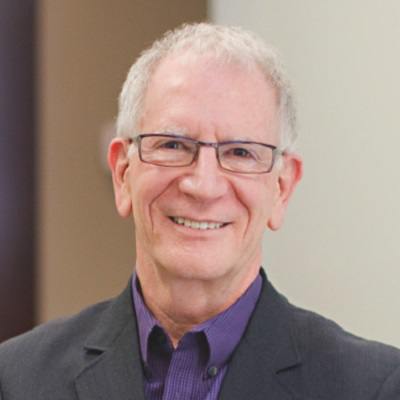 As patients become more educated about health, longevity, and the importance of a robust immune system, they will demand healthcare professionals to guide them in their decisions. With that in mind, Dr. Alvin Danenberg believes this is the time for dentistry to truly understand the interrelationships between the mouth and the rest of the body.
As patients become more educated about health, longevity, and the importance of a robust immune system, they will demand healthcare professionals to guide them in their decisions. With that in mind, Dr. Alvin Danenberg believes this is the time for dentistry to truly understand the interrelationships between the mouth and the rest of the body.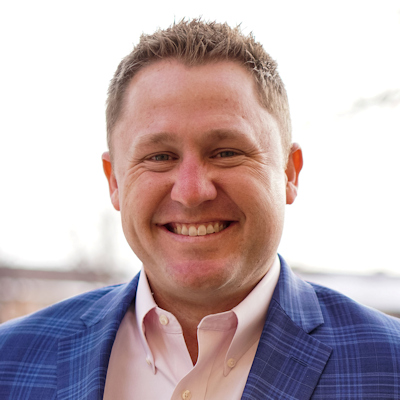 Kyle Francis believes that when coaching buyers on what to look for in a dental practice, most of the conversation boils down to three main questions: Does the practice make enough, are there enough patients, and how can the practice be grown? In this article, he shares some insight into these questions and their answers.
Kyle Francis believes that when coaching buyers on what to look for in a dental practice, most of the conversation boils down to three main questions: Does the practice make enough, are there enough patients, and how can the practice be grown? In this article, he shares some insight into these questions and their answers. About half of adults reported they or a family member skipped dental and medical visits due to COVID-19 in a new poll from the Kaiser Family Foundation, despite a surge of people leaving home more frequently to shop, visit family, and work.
About half of adults reported they or a family member skipped dental and medical visits due to COVID-19 in a new poll from the Kaiser Family Foundation, despite a surge of people leaving home more frequently to shop, visit family, and work.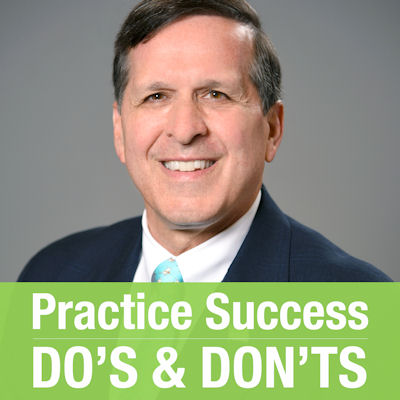 Revenue may be the single most important factor in business recovery. As your practice reopens, it must hit the ground running with revenue-generating strategies, explains Dr. Roger P. Levin in his new Practice Success tip.
Revenue may be the single most important factor in business recovery. As your practice reopens, it must hit the ground running with revenue-generating strategies, explains Dr. Roger P. Levin in his new Practice Success tip.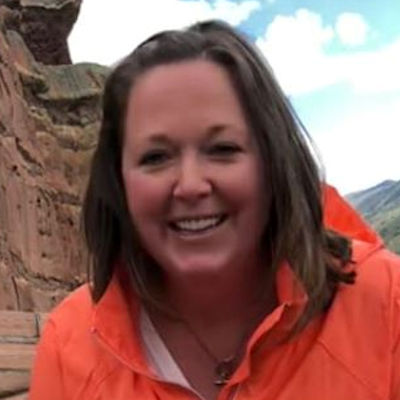 Katie Hess, RDH, says most dental practices have made attempts to increase the number of their reviews, but the focus often gets lost in the busyness of the day. She believes implementing systems to consistently and continuously increase online reviews and engage team members will set your practice up for long-term success.
Katie Hess, RDH, says most dental practices have made attempts to increase the number of their reviews, but the focus often gets lost in the busyness of the day. She believes implementing systems to consistently and continuously increase online reviews and engage team members will set your practice up for long-term success. Dental spending in the U.S. is estimated to plummet by up to 38% of projected pre-COVID-19 levels in 2020. At roughly $92 billion, that would be $56 billion less than projected before the pandemic, according to the latest data released by the ADA's Health Policy Institute (HPI).
Dental spending in the U.S. is estimated to plummet by up to 38% of projected pre-COVID-19 levels in 2020. At roughly $92 billion, that would be $56 billion less than projected before the pandemic, according to the latest data released by the ADA's Health Policy Institute (HPI).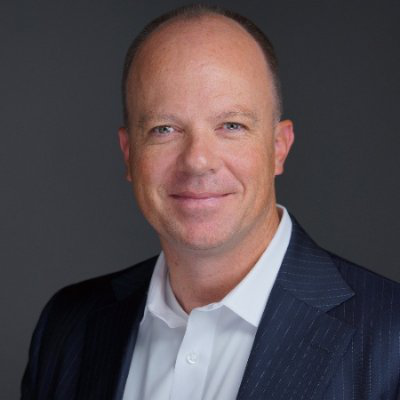 With dental practices back open, there are plenty of chances for face-to-face interaction with patients, both those who are excited about being back and those who are nervous about returning. Dr. James Anderson offers his advice on how to deal with both groups.
With dental practices back open, there are plenty of chances for face-to-face interaction with patients, both those who are excited about being back and those who are nervous about returning. Dr. James Anderson offers his advice on how to deal with both groups.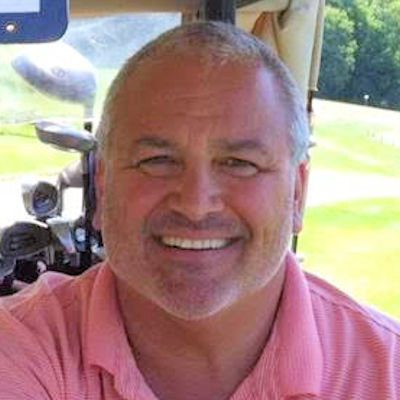 What's the difference between leadership and management? Dr. Dennis Pezzolesi explains -- and he writes that dental practice owners must have their team believe in the vision of the business and implement it to be successful. He gives dentists tips on how to do that, based on his 33 years of experience in the operatory.
What's the difference between leadership and management? Dr. Dennis Pezzolesi explains -- and he writes that dental practice owners must have their team believe in the vision of the business and implement it to be successful. He gives dentists tips on how to do that, based on his 33 years of experience in the operatory.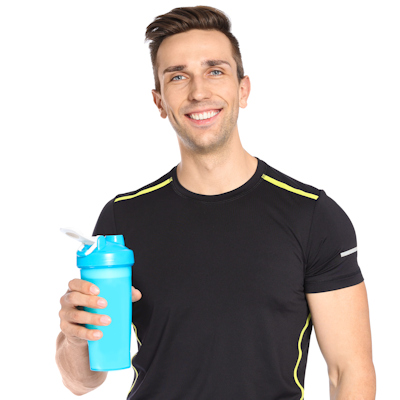 Elite athletes who changed their oral health habits to include using prescription-strength fluoride toothpaste and floss picks to clean between their teeth improved their sports performance in a recent study. The findings were published on June 18 in BMJ Open Sport & Exercise Medicine.
Elite athletes who changed their oral health habits to include using prescription-strength fluoride toothpaste and floss picks to clean between their teeth improved their sports performance in a recent study. The findings were published on June 18 in BMJ Open Sport & Exercise Medicine.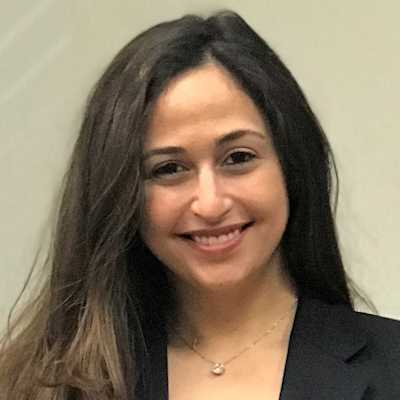 One area that practitioners are always looking to perfect is imaging. Sometimes, little tips and tricks can lead to better images on the first take. Dr. Lea Al Matny shares some advice that can make a difference in your dental practice.
One area that practitioners are always looking to perfect is imaging. Sometimes, little tips and tricks can lead to better images on the first take. Dr. Lea Al Matny shares some advice that can make a difference in your dental practice.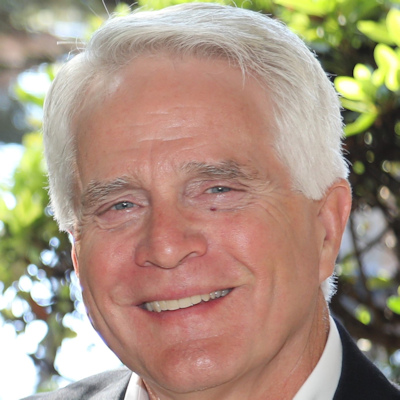 If a dental team member contracts COVID-19 in the dental practice, could the employer and/or business owner be held liable? It's a hot topic right now and one that has dentists and team members talking, so we asked dental human resources expert Tim Twigg for his thoughts and advice.
If a dental team member contracts COVID-19 in the dental practice, could the employer and/or business owner be held liable? It's a hot topic right now and one that has dentists and team members talking, so we asked dental human resources expert Tim Twigg for his thoughts and advice.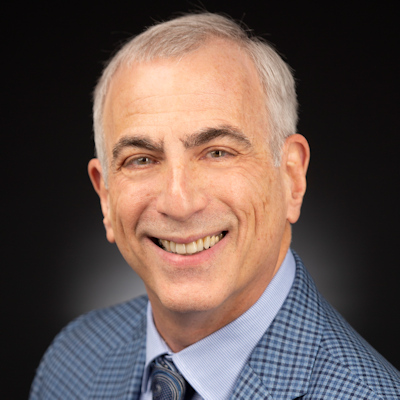 The recent struggle over personal protective equipment (PPE) is just one that dental practices have faced since reopening. Inevitably, there will be plenty more. The bottom line is that the strategy you use to approach any conflict will affect its resolution, writes Dr. Alan Stern.
The recent struggle over personal protective equipment (PPE) is just one that dental practices have faced since reopening. Inevitably, there will be plenty more. The bottom line is that the strategy you use to approach any conflict will affect its resolution, writes Dr. Alan Stern.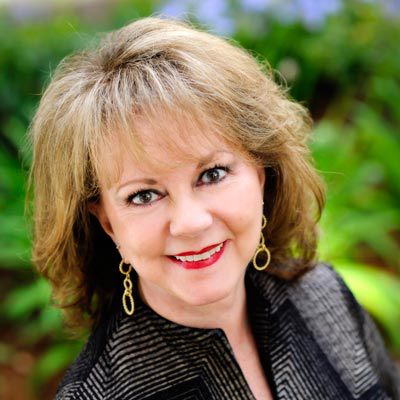 The second half of the calendar year is drawing closer, and Sally McKenzie believes that if you don't have a performance measurement system in place, now is the time to change that. She offers three tips to help you get started.
The second half of the calendar year is drawing closer, and Sally McKenzie believes that if you don't have a performance measurement system in place, now is the time to change that. She offers three tips to help you get started.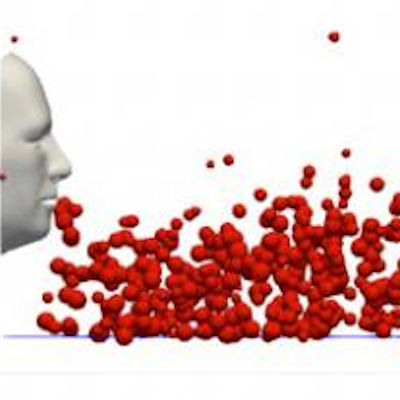 Wearing a mask doesn't eliminate airborne droplet transmission of viruses such as SARS-CoV-2 or completely shield the wearer from droplets expelled by others, according to a new study published on June 16 in Physics of Fluids. In addition, mild coughing further cuts protection.
Wearing a mask doesn't eliminate airborne droplet transmission of viruses such as SARS-CoV-2 or completely shield the wearer from droplets expelled by others, according to a new study published on June 16 in Physics of Fluids. In addition, mild coughing further cuts protection.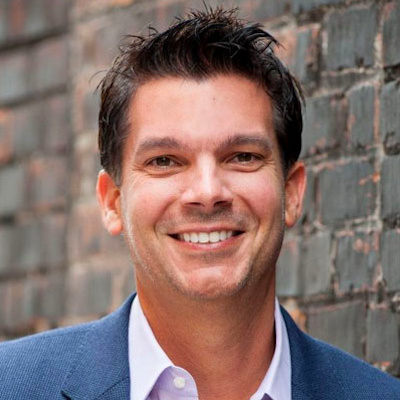 Dr. David Rice, clinical editor for DrBicuspid.com, discusses what he will be covering during an upcoming series on our site. What do dentists and dental team members need to know about smile design? There's more to creating a great smile than just which materials you should use.
Dr. David Rice, clinical editor for DrBicuspid.com, discusses what he will be covering during an upcoming series on our site. What do dentists and dental team members need to know about smile design? There's more to creating a great smile than just which materials you should use. As small business owners, it may be a good idea (and perfect timing) to think about a concept that is sensible and adhered to by corporations but rarely, if ever, considered by dental practice owners. Dr. Anthony Stefanou shares his thoughts on the importance of a quarterly practice appraisal.
As small business owners, it may be a good idea (and perfect timing) to think about a concept that is sensible and adhered to by corporations but rarely, if ever, considered by dental practice owners. Dr. Anthony Stefanou shares his thoughts on the importance of a quarterly practice appraisal.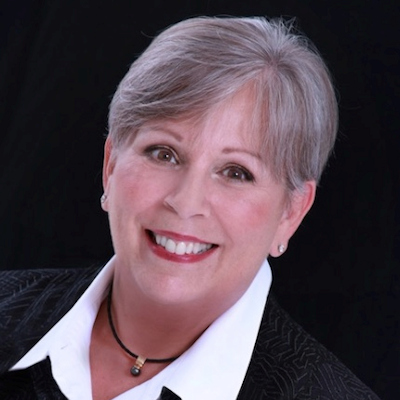 The U.S. Centers for Disease Control and Prevention (CDC) recently updated its guidance for dental practices. However, it has created some confusion and the ADA has offered some differing thoughts. In this podcast, we get the answers to important questions about the guidance from dental infection control expert Mary Govoni.
The U.S. Centers for Disease Control and Prevention (CDC) recently updated its guidance for dental practices. However, it has created some confusion and the ADA has offered some differing thoughts. In this podcast, we get the answers to important questions about the guidance from dental infection control expert Mary Govoni.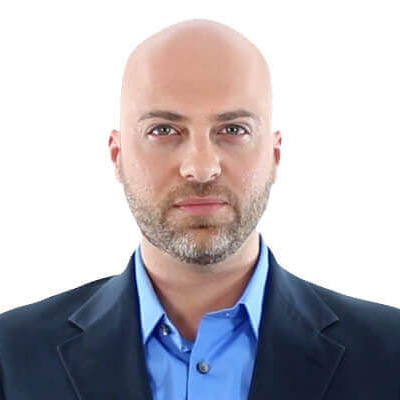 Alex Nottingham believes that one of your practice's goals should be to eliminate systemic issues that interfere with a smooth and polished patient journey. In this article, he gives some recommendations on how to remove friction from your practice.
Alex Nottingham believes that one of your practice's goals should be to eliminate systemic issues that interfere with a smooth and polished patient journey. In this article, he gives some recommendations on how to remove friction from your practice.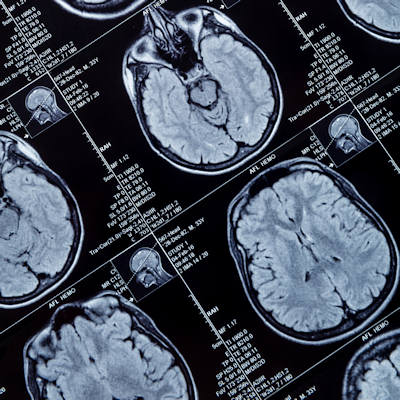 Imaging, specifically magnetic resonance imaging and computed tomography, helped clinicians determine that a mass located on the chin of a newborn girl was a second oral cavity, according to a recent case report. The cavity contained unerupted teeth and an accessory tongue that moved in sync with her oral tongue.
Imaging, specifically magnetic resonance imaging and computed tomography, helped clinicians determine that a mass located on the chin of a newborn girl was a second oral cavity, according to a recent case report. The cavity contained unerupted teeth and an accessory tongue that moved in sync with her oral tongue.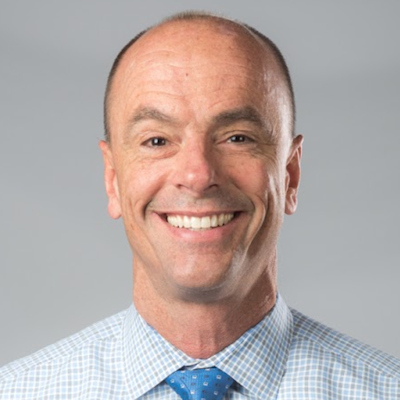 Dr. David Rice, clinical editor for DrBicuspid.com, sat down with ACT Dental founder and CEO Kirk Behrendt to discuss a wide range of important topics as dental practices rebound from COVID-19, touching on everything from filling the schedule to changes with insurance.
Dr. David Rice, clinical editor for DrBicuspid.com, sat down with ACT Dental founder and CEO Kirk Behrendt to discuss a wide range of important topics as dental practices rebound from COVID-19, touching on everything from filling the schedule to changes with insurance.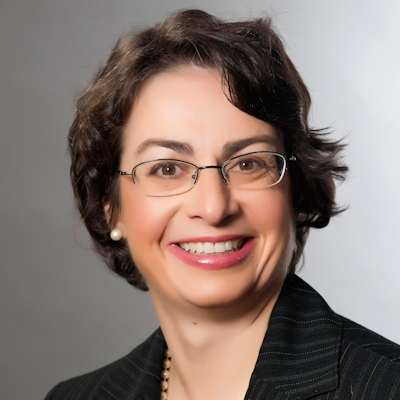 Ann-Marie DePalma answers a question from a reader about finding the true number of active patients in practice management software (Eaglesoft) and discusses what the term "active patients" really means.
Ann-Marie DePalma answers a question from a reader about finding the true number of active patients in practice management software (Eaglesoft) and discusses what the term "active patients" really means.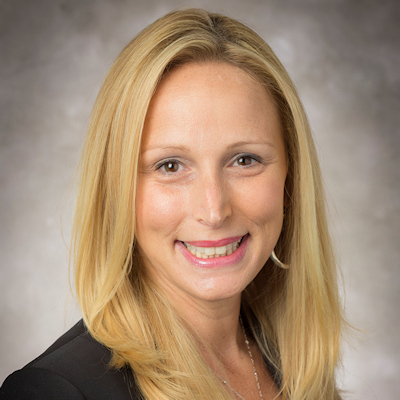 What benefits do dental savings plans hold for a practice? How can they increase case acceptance rates? As dental practices are looking for more options to bring back reluctant patients or help patients who have had changes in their employment status, we asked this and more of Jenn Stoll of DentalPlans.com.
What benefits do dental savings plans hold for a practice? How can they increase case acceptance rates? As dental practices are looking for more options to bring back reluctant patients or help patients who have had changes in their employment status, we asked this and more of Jenn Stoll of DentalPlans.com.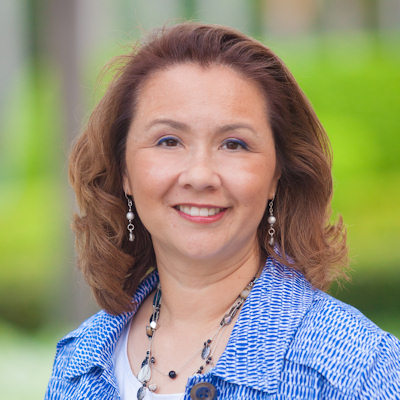 With a Consumer Advisory titled, "Reopened Dental Practices Could be Violating the Consumer Protection Act by Charging Consumers for Enhanced Infection Controls," Maryland dentists have been put on watch regarding their patients and passing along personal protective equipment (PPE) charges. Dental insurance expert Teresa Duncan breaks down the advisory and what it could mean for you.
With a Consumer Advisory titled, "Reopened Dental Practices Could be Violating the Consumer Protection Act by Charging Consumers for Enhanced Infection Controls," Maryland dentists have been put on watch regarding their patients and passing along personal protective equipment (PPE) charges. Dental insurance expert Teresa Duncan breaks down the advisory and what it could mean for you. Dr. Nammy Patel practices in downtown San Francisco. Between COVID-19 and being in the heart of protests, Dr. Patel talks about the struggles and successes she has seen over the past few weeks. She also talks about the relationship between holistic dentistry and technology.
Dr. Nammy Patel practices in downtown San Francisco. Between COVID-19 and being in the heart of protests, Dr. Patel talks about the struggles and successes she has seen over the past few weeks. She also talks about the relationship between holistic dentistry and technology.